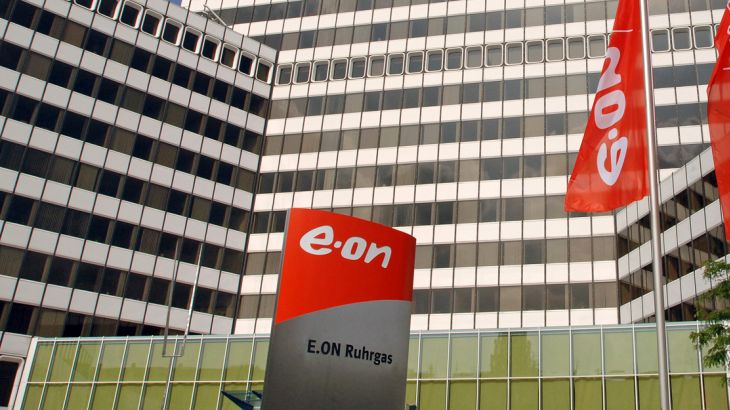E.ON Romania has made a review of its 10 years of presence on the local energy market, the results of 2014, and plans and objectives for the year ahead. It was a decade in which the company consolidated operations and remained a major player in the energy market.
Shortly put in a few numbers, E.ON presence in Romania meant a total investment of about 1.3 billion euros, mainly for modernization and rehabilitation of natural gas and electricity networks. In the mentioned period, the natural gas network has been upgraded (pipeline replacement and cathodic protection) over a length of almost 6,350 kilometers and was extended for a length of about 1,250 kilometers. The electricity grid has been upgraded and rehabilitated over a length of around 2,700 kilometers, spread over a length of over 1,100 kilometers for connection of new customers and 2,550 substations were replaced or upgraded.
At the same time, E.ON Romania has contributed to the state budget with about 1.4 billion euros in taxes. Also, the company’s involvement in social responsibility projects meant support with over 7.8 million euros of numerous projects for the communities in which E.On Romania operates; the total number of beneficiaries of these initiatives amounts to about 235,000. Frank Hajdinjak, E.ON Romania general director, was kind enough to answer some questions.
Please give us some details on the specific projects you are about to complete in the near future on the Romanian market.
Since January 1st, E.ON Distribuţie Romania has started its business, a company resulted from the merger of the gas and electricity distribution companies. We thus want to offer customers a single interface, to increase the quality of the services put on the market, to obtain the best management of the assets and a streamlining of the shared costs.
The distribution grids still need massive investments because, ever since 2005 when we took them over from the state, they had a high degree of wear and tear.
In 2014 we invested approximately lei 420 million (euro 94 million); that has been the highest amount allocated to this end in the last years, mainly in the modernization of the gas and electricity distribution grids.
For this year we have budgeted investments of almost lei 400 million (euro 90 million), amounts which will also be allocated to grid modernization projects as priorities. Investments in grids show their results in time, and they remain of essence in improving services and for the security in supplying gas and electricity to consumers.
What are the current expectations of the E.ON Group regarding Romania for the coming years? Are they related rather to financial KPI (profitability, revenues etc.), to the market share and exposure or to other issues?
Our expectations are related first of all to the ensuring a stable political and economic climate, which should give confidence and should allow for drafting medium and long term projections. The return on energy businesses should reflect the real economic conditions so that the operators on the market may ensure a sustained pace of investments and thus develop themselves.
Since the beginning of this year, the Regulated Rate of Return (RRR) used in setting the tariffs for the electricity distribution service has been adjusted by ANRE to 7.7%. This modification will lead to a 12% reduction in the financial return of the companies in the energy sector, which in order to maintain themselves within balanced financial parameters might be compelled to resort to some corrections to their investment plans.
I cannot emphasize enough the need for state institutions to initiate consultations with the business environment whenever they envisage legislative or regulation projects applicable to the energy sector in order to prevent possible undesired effects and to identify the best solutions in enforcing them.
And in the end, on a more personal note, what is most annoying and the most inspiriting factor/element you have encountered during your day-to-day activity in Romania?
The most disheartening elements were legislative instability, overnight introduction of taxes, changes in the regulations with an impact on the business environment with no minimum consultation, introduction of regulations with no impact studies being conducted, with no rigorous substantiation.
However, no market is perfect and if we take a look at where we were ten years ago and where we stand now, progress is undisputable.
Romania has become ever more alluring, the environment business is noticeably better and investments are beginning to bear fruit, as service quality indicators have improved. The progress made step by step, year after year, has motivated us to push on and I can say it was a good decision to invest in Romania. I hope things, on the whole, will keep a positive trend because Romania has the potential of becoming much more attractive to investors than it is at present.
